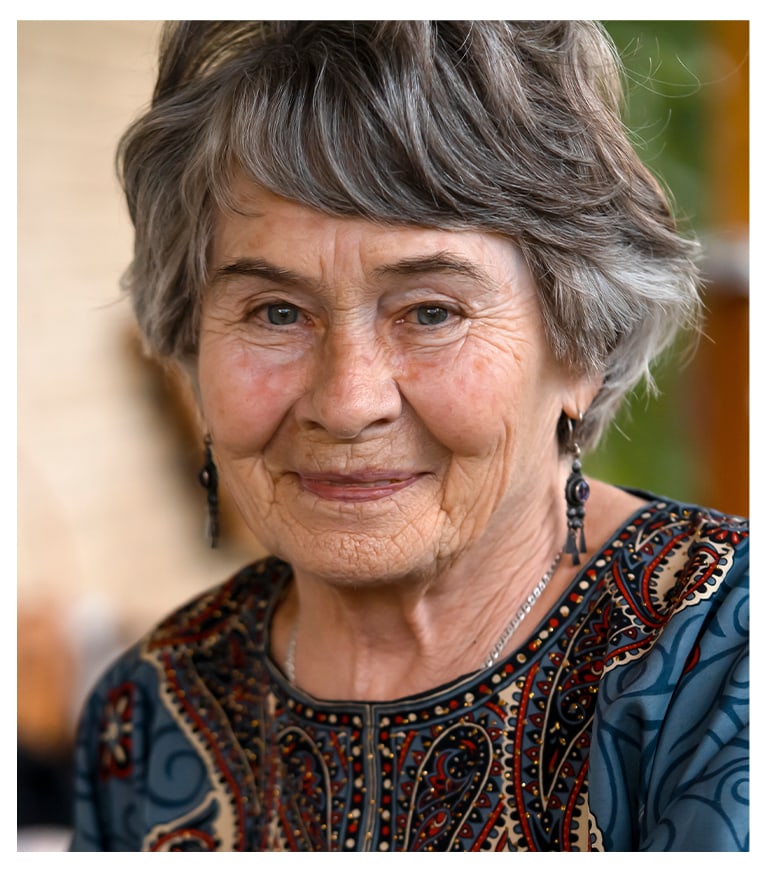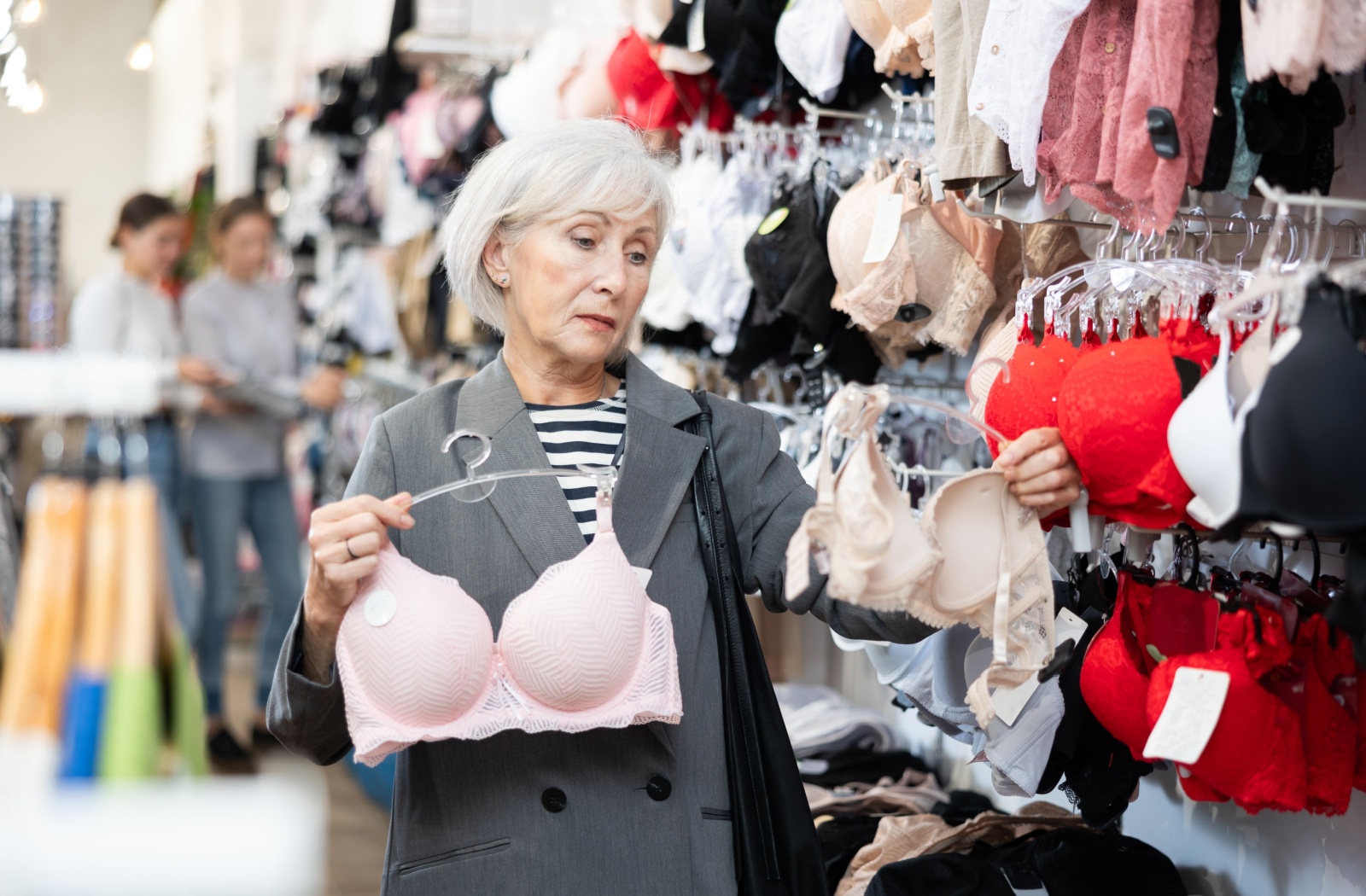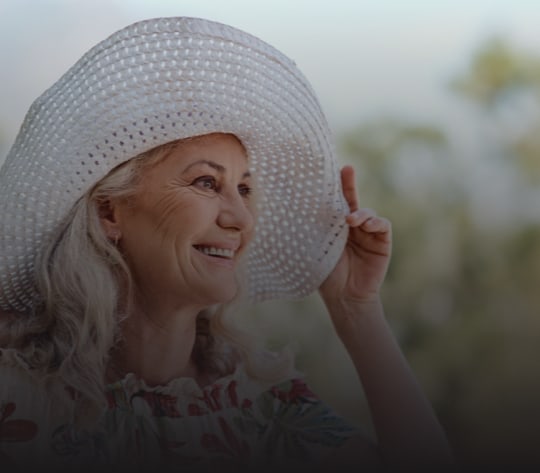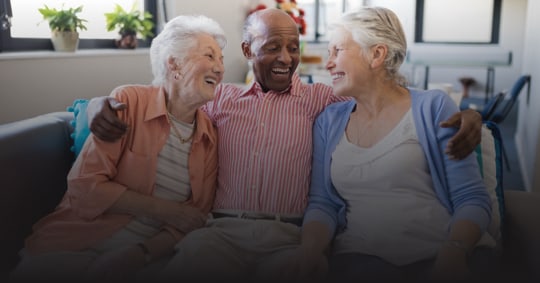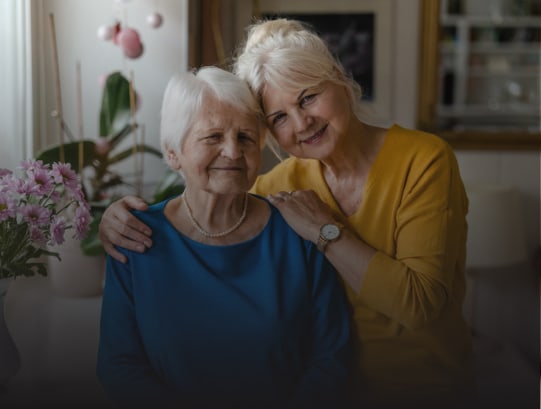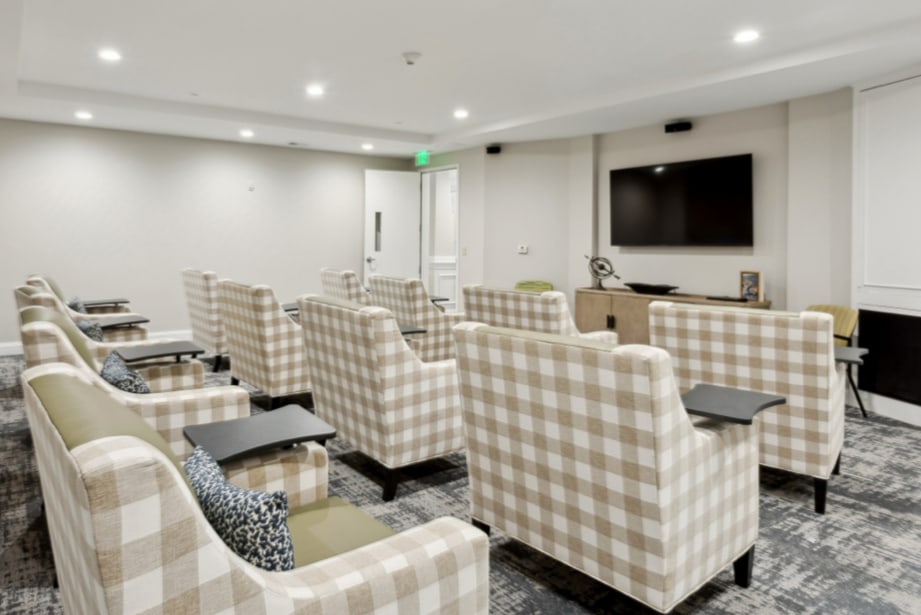Key Takeaways
- Everyday comfort: Front-closure, wireless, and full-coverage bras are reliable staples.
- Sports bras matter: Support movement and wellness, so you can stay active.
- Home comfort: Leisure bras and bralettes provide softness and ease.
- Fit comes first: Wide straps, breathable fabrics, and proper sizing prevent discomfort.
- Confidence counts: The right bra supports posture, activity, and peace of mind.
Understanding the best bras for senior women begins with recognizing how needs shift over time. Aging brings changes in posture, skin sensitivity, and muscle tone. A bra that may have felt supportive decades ago might now feel restrictive, dig into the skin, or fail to provide enough lift.
That’s why the best bras for senior women—whether living at home, in independent living, or assisted living—focus on comfort, accessibility, and gentle support.
From front-closure bras that simplify dressing, to wireless designs that reduce irritation, to sports bras that make movement easier, each style meets different daily needs. Adding leisure bras and bralettes for relaxation promotes comfort throughout the day.
Choosing the right fit is not only about clothing—it’s about promoting confidence, ease of movement, and overall well-being.
The Risks and Benefits of an Ill-Fitting Bra
Wearing a bra that no longer fits properly can lead to:
- Shoulder or back strain from uneven support
- Irritation or redness caused by tight straps or bands
- Limited mobility if hooks or closures are difficult to manage
By contrast, a well-fitted bra provides:
- Physical support to improve posture and reduce fatigue
- Ease of use through closures designed with accessibility in mind
- Soft fabrics that help prevent and minimize skin irritation
- Emotional comfort, helping women feel confident in daily routines
What Bras Work Best for Everyday Wear?
For daily routines, most senior women prioritize comfort without sacrificing support. Several styles are particularly well-suited.
Front-Closure Bras
Front-closure bras are popular because they make dressing easier. Seniors with arthritis or limited mobility in their shoulders find this design more manageable than traditional back clasps. Wide straps often come standard, helping to distribute weight and reduce shoulder pressure.
Wireless Bras
Underwires can poke, dig, or cause discomfort. Wireless bras use supportive materials and stretchy fabrics to provide structure without the stiffness of wires. Many wireless designs still offer shaping, making them practical for all-day wear.
Full-Coverage Bras
Full-coverage bras are designed to prevent shifting and spillage. They create a smooth silhouette under blouses, sweaters, and dresses, while reinforced side panels give additional stability. The style also reduces the need for frequent adjusting, offering peace of mind.
Why Are Sports Bras a Smart Choice for Seniors?
Sports bras aren’t only for athletes—they can be a valuable part of a senior woman’s wardrobe. With wellness and movement becoming increasingly important at every age, supportive bras for exercise and daily movement are essential.
Benefits of Sports Bras
- Enhanced support during activities like yoga, walking, or light aerobics
- Moisture-wicking fabrics to keep skin dry and reduce irritation
- Wide straps or racerback styles to ease shoulder and back strain
How Sports Bras Support Active Living
Staying active is about more than fitness—it’s about maintaining independence, social connection, and overall wellness.
For senior women, having the right gear, including a well-fitted sports bra, makes participation in group classes or solo exercise more comfortable and enjoyable.
What Bras Support Comfort at Home?
Not every bra needs to provide maximum lift or shaping. For many women, comfort is the priority when relaxing at home.
Leisure Bras
Leisure bras are lightly supportive, wire-free, and often pull-on styles. They feel similar to a camisole and provide enough structure for comfort while reading, socializing, or enjoying a quiet afternoon.
Bralettes
Bralettes combine gentle support with style. Many are made with soft lace or cotton blends. Bralettes can double as both an undergarment and a casual top under cardigans. Their simplicity makes them a favorite for everyday comfort.
What Features Should Seniors Look for in a Bra?
Choosing a bra style is just the first step, as many styles have a variety of features that can affect comfort, performance, and appearance.
Wide, Padded Straps
Straps that dig into the shoulders can cause pain. Padded straps provide cushion while wider bands distribute weight more evenly.
Front Closures or Easy Fastenings
Arthritis, limited flexibility, or reduced grip strength can make back clasps difficult. Front closures or zip designs reduce strain and simplify dressing.
Breathable, Soft Fabrics
Materials like cotton blends or moisture-wicking fabrics reduce skin irritation and keep residents comfortable all day.
Flexible Bands and Cups
Body shapes change with age. Bras that offer stretch and adaptability help provide a comfortable fit, even if weight or posture shifts over time.

How Can Seniors Find the Right Fit?
The foundation of a comfortable bra wardrobe is proper sizing. Yet studies show that many women wear bras that don’t fit correctly.
Professional Fittings
Department stores or lingerie shops often provide fitting services. A professional can measure both band and cup size, offering a more accurate match than guessing.
At-Home Fit Checks
Women can also check their bras at home by asking:
- Does the band stay in place without riding up?
- Do straps sit securely without digging?
- Do cups fully contain breast tissue without gaps or overflow?
If not, adjustments or a new size may be necessary.
How Many Bras Should Seniors Keep in Their Wardrobe?
A practical wardrobe covers different needs. Seniors should consider:
- 2–3 everyday bras for rotation
- 1–2 sports bras for exercise and wellness
- 2 leisure bras or bralettes for at-home comfort
- 1 dressier option with smooth lines for special occasions
Rotating your bras not only helps them last longer, but it also means you always have a comfortable option ready to wear.
Practical Tips for Choosing and Caring for Bras
- Wash gently
- You can handwash or use a mesh bag on a delicate cycle and let your bras air dry (instead of machine dry) to help your bras last longer
- Replace regularly
- Fabrics and elastic wear out over time—most bras need replacement every 6–12 months with regular use
- Prioritize comfort over fashion
- Style matters, but long-term comfort and health should come first; when you make fit a priority, it can support confidence and appearance
- Buy in multiples
- When you find a style that fits well, purchase more than one so you have a reliable option ready when your favorite wears out over time
Key Points to Remember
Senior women deserve bras that emphasize support, comfort, and accessibility. Keep these key points in mind:
- Front-closure, wireless, and full-coverage bras are reliable everyday options
- Sports bras make active living and daily movement more comfortable
- Leisure bras and bralettes support at-home relaxation
- Fit checks and proper sizing help avoid discomfort and improve posture
Senior Wellness is Priority at Somerby Peachtree City
At Somerby Peachtree City in Georgia, comfort and confidence go hand in hand. Just as the right bra supports posture and ease, the community’s wellness philosophy helps residents feel supported in all aspects of daily life.
From group wellness classes to fitness amenities, residents are encouraged to stay active and engaged in ways that feel natural and fulfilling.
Schedule a visit today to learn how Somerby Peachtree City helps residents live comfortably, confidently, and with the support they need every day.
